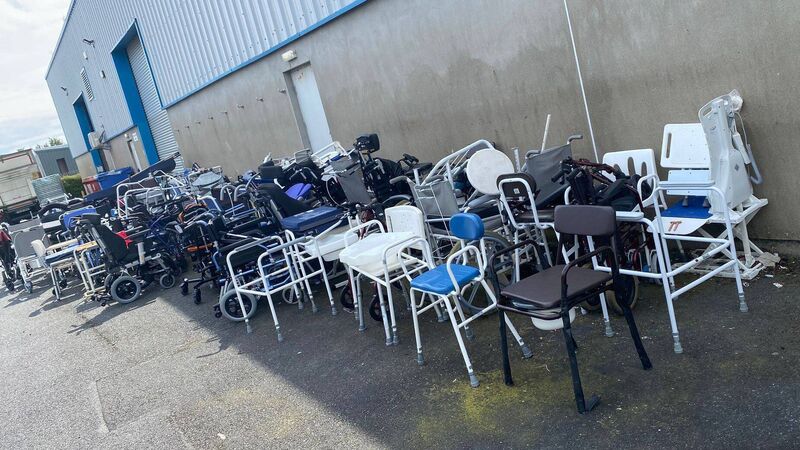Irish Examiner view: HSE treatment of medical equipment is sickening

A line of walking aids outside a HSE storage facility in Ardcavan, Wexford. Picture: Deirdre Taaffe
As reported by Neil Michael in this newspaper, Wexford mother Deirdre Taaffe — whose son had to wait six weeks for a wheelchair — has called on the HSE to explain why “nearly new” walking aids are being stored in the open air behind a supply depot.
















